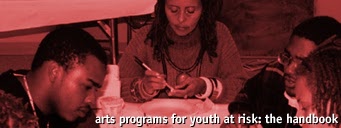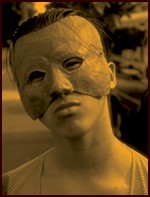


Assess Ongoing Training Needs and Evaluate ArtistsRegular ongoing training sessions throughout the program are essential for team building and to help team members continue to learn new skills. For example, at Urban smARTS,the team meets weekly to discuss program progress and to plan field trips and performances. It is imperative that artists are regularly asked: What is working? What isn't working? What can we do differently to make the program work better? The program manager visits two or three schools every day. If any problem is noted in the interaction between an artist and youth or among artists, the program manager documents the situation and visits the school three to five more times, observing the interactions within the classroom, talking with youth, the artists, and the teacher-liaison to try and understand and resolve any issues. A formal evaluation is completed at the end of the year for each artist. Artists are rated by the program manager on their mastery of their art, planning and preparation, organization and management skills, and communication and rapport with children and with collaborating partners. The program manager meets with each artist to discuss the evaluation. Whether or not an artist is invited to return to the program next year is based on the evaluation. Sessions that worked best include periodic debriefings among artists and probation officers after sessions with the youth. In addition, youth are regularly asked how they like the artist, what they like best about the artwork, etc. Artists keep journals with the day's plan, what happened, and their reactions. The journals are useful because they:
More Resources
|

|
||||||||||||||||||||